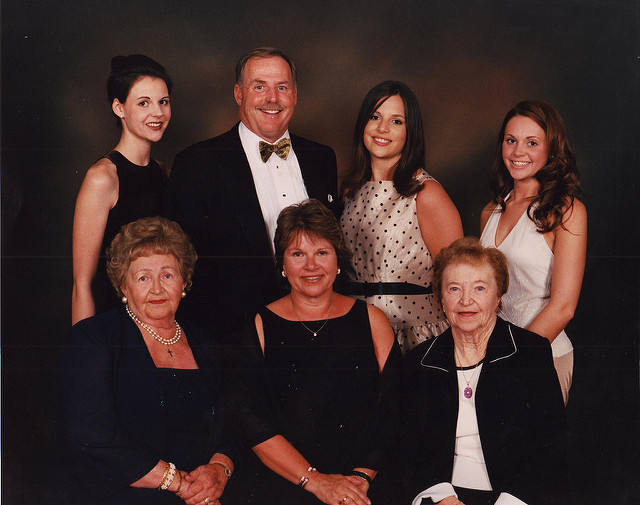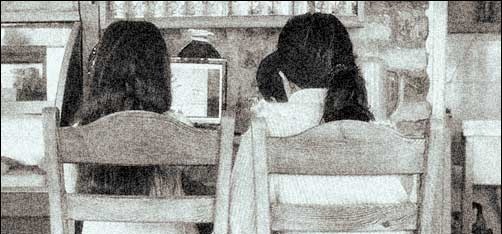Are You Enmeshed In Family Relationships?
Enmeshment is the term we use in Family Therapy that refers to an extreme closeness between all, or certain, members of a family. When relationships are enmeshed boundaries are so blurred that this creates dependency – the inability to feel, speak and make choices for oneself. It is often associated with low self esteem.
Let me show you how to recognise it, why it happens, and how to overcome it.

Enmeshment describes an extreme closeness between family members at the expense of individuality. The ideal for family members is interdependency.
Signs Of Enmeshment
Enmeshment is an emotional quality. Here are some common characteristics of an enmeshed family:
- This relationship becomes the cornerstone of life at the expense of other cherished relations.
- People feel each other’s emotions as if they were the same person. They get absorbed with the other’s emotions and so want to ‘rescue’ them.
- When the daughter is sad the mother gets sadder. She cannot support her daughter because of her inability to separate her emotions from her daughter’s. The daughter stops sharing her sadness.
- Conflict or distance with each other is not bearable. It creates too much anxiety and a compulsion to fix the problem.
- Over-involvement makes the other person the center of their lives, attaching self-esteem and happiness to another’s.
- A parent may rely on kids for emotional support.
- When the contact is less frequent there is anxiety.
- People spend all the time together, sharing everything. They don’t give each other time and space to develop their individuality.
- The rule of such families is that family problems stay secret within the family. Sometimes even brides and grooms are not accepted in the family circle.
- Family identity is so rigid that members who are too different are cut off.
- Parents always feel the right to speak about how their children should behave even when they are grown up.
Why Does Enmeshment Occur
Trauma from ancestors, or some traumatic events in our lifetime may lead us to take decisions to be extremely close.
Enmeshment can be a family pattern that was passed down from the previous generation.
It might be a reaction to not feeling held by one’s family. The purpose is almost always to protect ourselves and our loved ones from being hurt.
Alternative To Enmeshment
It is difficult for enmeshed family members to recognise their enmeshment.
The ideal for family members is interdependency. Families who achieve interdependency are like this :
- They recognise they have different emotions and can make independent decisions without falling out with each other.
- They know their decisions affect each other.
- When a parent notices their daughter to be upset s/he does not get panicky when wanting to fix her.
- Parents provide a holding environment where there is nurturing concern, whilst allowing their family member the emotional space to solve their own problems.
How To Overcome Enmeshment
Family patterns are systemic habits. It is possible to change them. Here are some suggestions:
- Give yourself time to be alone so you find your voice.
- Gently create small boundaries whilst showing you care in your own way.
- Get involved with new and old friends, spend time with them.
- Ask yourself what you want and follow through.
- Family therapy can help the process to be beneficial for all family members and the transition to be smoother.
If you think you may be suffering from enmeshment just comment here, (your message won’t be seen by others), send an e-mail or give me a call.
Attribution 2.0 Generic (CC BY 2.0)image:K P





I am married to someone who I think is in an enmeshed family. I have been married to her for 19 years. This family has need to be constantly around each other. All phone calls my wife makes are to other family members. They are constantly on the phone with each other, and they are constantly socializing with each other with few outside friends. It is tough being an in-law as they, though the are polite, ignore you. They are only happy when they are in each other’s company. It appears to me that all of them pay little attention to the importance of the spousal relationship. They also always present to the outside world that they are the perfect family. You get the sense when you are around them that they are putting on a show. One of my wife’s sisters is having an affair, and they are essentially cutting her off from the family. My wife for reasons that are unclear to me, now hates her sister. I think a more normal reaction would be to be concerned with your sibling’s happiness and inquire why she is doing this rather than being judgemental. I think the big trauma in this family occurred years ago when one of the my wife’s sister developed leukemia. Fortunately she did well but I think it did something to the family dynamics. I have had trouble over the years coping with both my wife and the relationship she has with her family. I have even told people that I harbor so much resentment towards my in-laws that I would rather divorce them than my wife.
Hello,
Thank you for your comment on this post. I will share with you my thoughts:
It is extremely difficult to be included in such families as an ‘outsider’ who marries a member.
Insecurity of the family system may lead to the exclusion of the original members from the environment.
Ignoring you as their son-in-law probably is due to some historical ancestral trauma where they developed this insular relating as a coping mechanism.
Is there a migration in your wife’s family of origin?
May be you were chosen unconsciously as somebody who would tolerate such a family organisation.
There may also be an unconscious motif on your part that wants to be loosely related to your in-laws.
The threat of exclusion extends to splitting family members even against each other. Often the rule is ‘be loyal to the family rules; otherwise you will be excluded’. The rule is to exclude the disobediant one by every member of the family.
If your wife disobeys this rule she will also be excluded. And this may be like ‘death’ for her.
You may be right about the effects of your wife’s sister’s illness.
I am sorry that you had to suffer in this way.
I feel you directed your frustration wisely on your in-laws as a way of protecting your relationship with your wife.
However in the long run being angry with them will not improve the quality of your marital life.
In order to increase your satisfaction in your marriage, some individuation is required; probably for your wife as well as to a certain extent for you.
Best wishes
Irem